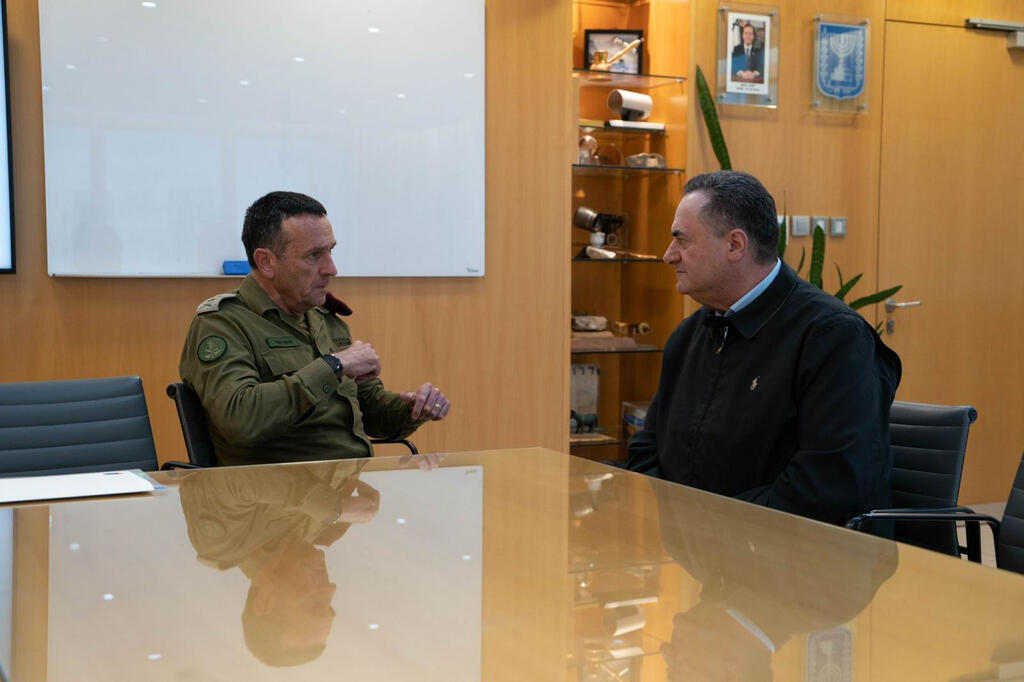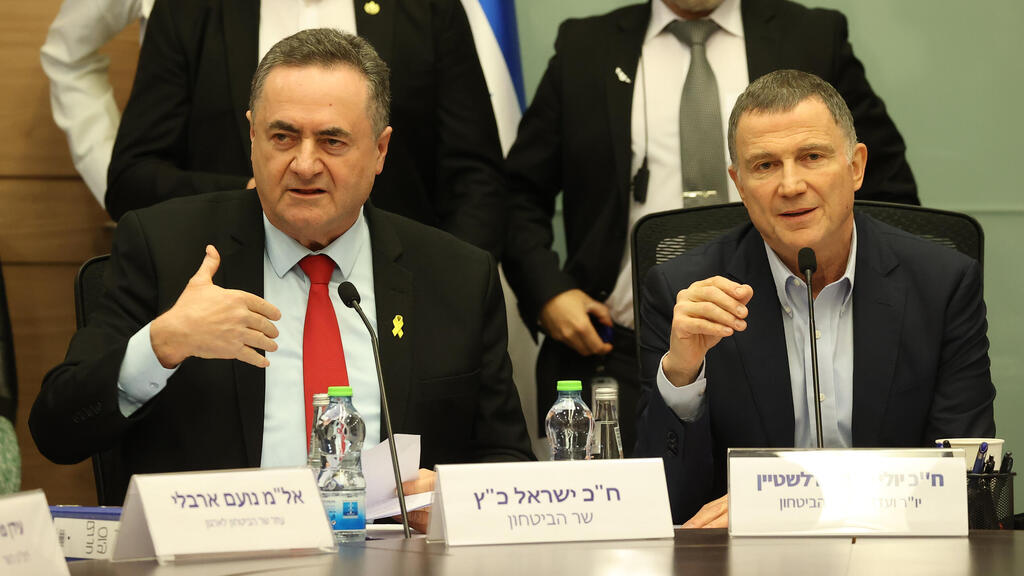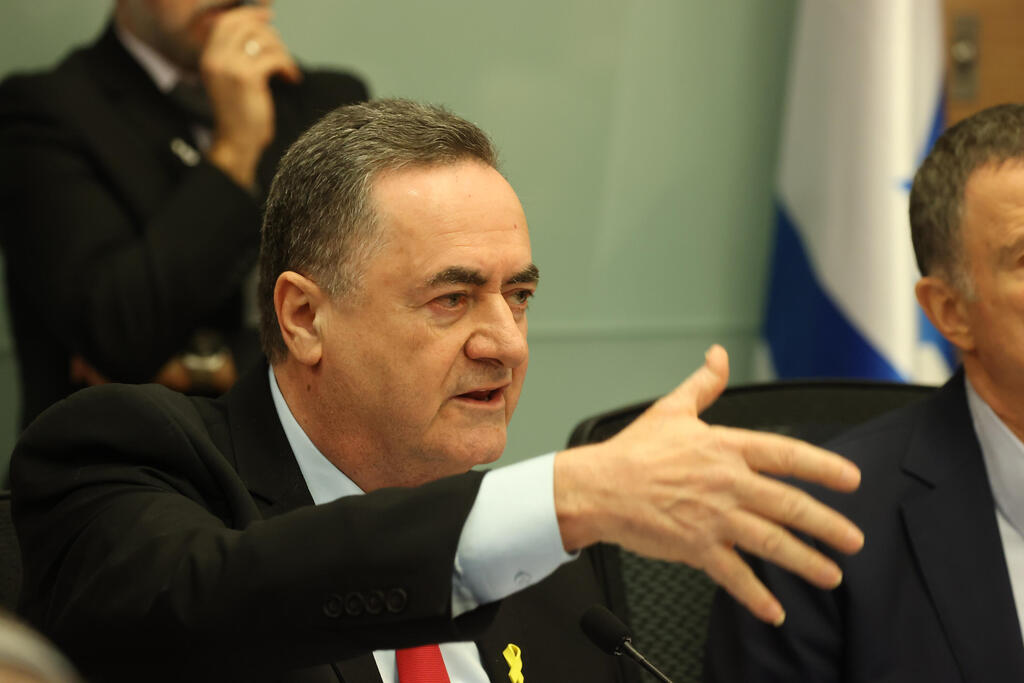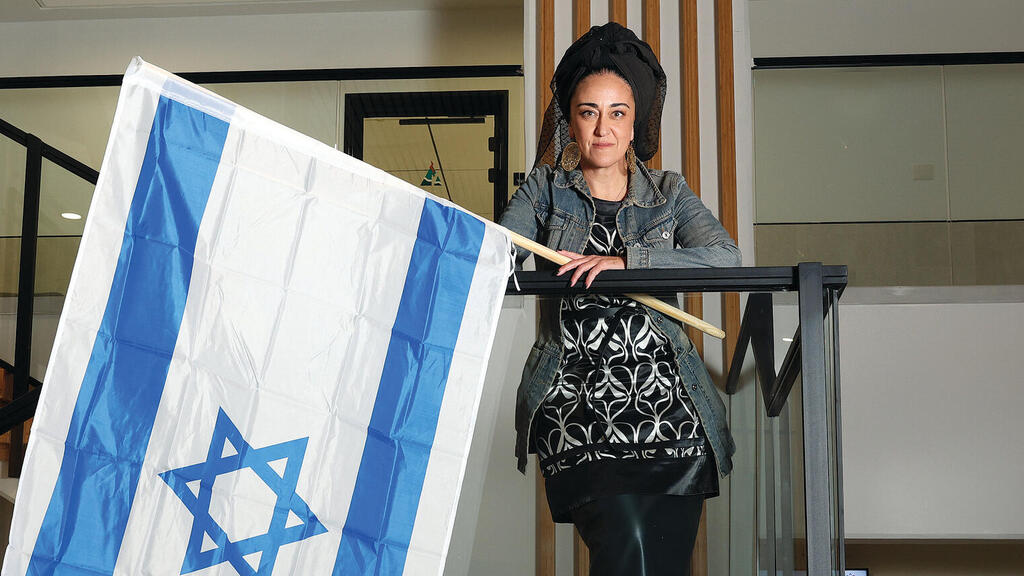Getting your Trinity Audio player ready...
The Knesset Foreign Affairs and Defense Committee, chaired by MK Yuli Edelstein, convened with Defense Minister Israel Katz on Tuesday to be briefed on the proposed draft exemption law for the ultra-Orthodox sector.
After nearly six months of closed-door negotiations among coalition leaders, Katz didn’t introduce a draft of law as promised but presented "principles to achieve the goal of significantly increasing the number of yeshiva students serving in the military, while regulating the status of those engaged in full-time Torah study."
Katz, who attended the meeting without IDF representatives, said he came to present principles for "advancing a framework to integrate tens of thousands of ultra-Orthodox individuals into meaningful service in the IDF, while ensuring conditions that respect their lifestyle. This aims to alleviate the burden on reservists and active-duty soldiers."
In addition to integrating the ultra-Orthodox, Katz said that he would not promote a law with the principle of "preserving the Jewish Torah world," which he views as "a central foundation of our existence as a people and as a Jewish state in the Land of Israel.
Katz outlined a main goal of drafting 50% of 19-year-olds from the ultra-Orthodox community, with a gradual timeline for achieving this. According to the IDF's projections, 4,800 ultra-Orthodox men would be drafted in the first year, increasing to 5,700 in the second year, with incremental increases each year thereafter.
4 View gallery


Chief of Staff Herzi Halevi with Defense Minister Israel Katz
(Photo: Defense Ministry)
However, the IDF has previously said that it would have no limitation on absorbing additional soldiers starting in 2026. Despite this position, when asked when the draft rate for ultra-Orthodox youth would reach 50%, Katz responded it would only occur in the seventh year, which means that most ultra-Orthodox men of draft age would be exempt from military service until 2032 at the least.
Katz also said that to ensure compliance with the goals, "unlike previous arrangements, this law proposes economic sanctions for failing to meet the annual targets." He said sanctions would apply to all yeshivas for students eligible for military service. "Those not studying would be carefully scrutinized and sanctioned — not just the yeshivas, as was not the case previously."
Haredi men block a main highway protesting the draft
(Shilo Freid )
Katz's proposal suggest that only partial and economic sanctions would be imposed. "If we fail to meet the targets, we’ll introduce a new law to impose all necessary sanctions." Meanwhile sources in the ultra-Orthodox parties said they would not support a bill that included sanctions imposed on those who do not enlist.
Amid ultra-Orthodox protests against the bill, senior rabbis have voiced strong opposition to IDF enlistment, including a former chief rabbi who urged followers to discard draft orders. Addressing this opposition, Katz said, "Is integrating the ultra-Orthodox into security and the economy necessary? Absolutely. Is it possible? Only by consent."
Two hours before the committee convened, Laly Dery, the mother of Sgt. First Class (res.) Saadia Yaakov Dery, who was killed on June 20 last year in Gaza led a protest march from the military cemetery in Jerusalem to the Knesset, in protest of Kat's proposed bill.
Get the Ynetnews app on your smartphone: Google Play: https://bit.ly/4eJ37pE | Apple App Store: https://bit.ly/3ZL7iNv
The late Saadia, a former yeshiva student, was called up for reserve duty during the war in Gaza. Since he was killed his mother has been advocating for equal service for all.
"When I innocently asked how it was possible that Saadia fell in Jabaliya after it had been cleared of terrorists and we paid a heavy price in lives lost during operations in the area, I was told it was due to a manpower shortage in the military, " Deri told Ynet ahead of the march.








